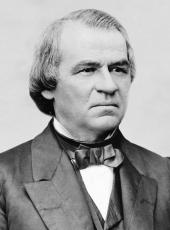Gentlemen of the Senate and of the House of Representatives:
An official copy of the order issued by Major-General Winfield S. Hancock, commander of the Fifth Military District, dated headquarters in Orleans, La., on the 29th day of November, has reached me through the regular channels of the War Department, and I herewith communicate it to Congress for such action as may seem to be proper in view of all the circumstances.
It will be perceived that General Hancock announces that he will make the law the rule of his conduct: that he will uphold the courts and other civil authorities in the performance of their proper duties, and that he will use his military power only to preserve the peace and enforce the law. He declares very explicitly that the sacred right of the trial by jury and the privilege of the writ of habeas corpus shall not be crushed out or trodden under foot. He goes further, and in one comprehensive sentence asserts that the principles of American liberty are still the inheritance of this people and ever should be.
When a great soldier, with unrestricted power in his hands to oppress his fellow-men, voluntarily foregoes the chance of gratifying his selfish ambition and devotes himself to the duty of building up the liberties and strengthening the laws of his country, he presents an example of the highest public virtue that human nature is capable of practicing. The strongest claim of Washington to be "first in war, first in peace, and first in the hearts of his countrymen" is founded on the great fact that in all his illustrious career he scrupulously abstained from violating the legal and constitutional rights of his fellow-citizens. When he surrendered his commission to Congress, the President of that body spoke his highest praise in saying that he had "always regarded the rights of the civil authorities through all dangers and disasters." Whenever power above the law courted his acceptance, he calmly put the temptation aside. By such magnanimous acts of forbearance he won the universal admiration of mankind and left a name which has no rival in the history of the world.
I am far from saying that General Hancock is the only officer of the American Army who is influenced by the example of Washington. Doubtless thousands of them are faithfully devoted to the principles for which the men of the Revolution laid down their lives. But the distinguished honor belongs to him of being the first officer in high command south of the Potomac, since the close of the civil war, who has given utterance to these noble sentiments in the form of a military order.
I respectfully suggest to Congress that some public recognition of General Hancock's patriotic conduct is due, if not to him, to the friends of law and justice throughout the country. Of such an act as his at such a time it is but fit that the dignity should be vindicated and the virtue proclaimed, so that its value as an example may not be lost to the nation.
ANDREW JOHNSON.
Andrew Johnson, Special Message Online by Gerhard Peters and John T. Woolley, The American Presidency Project https://www.presidency.ucsb.edu/node/202070

